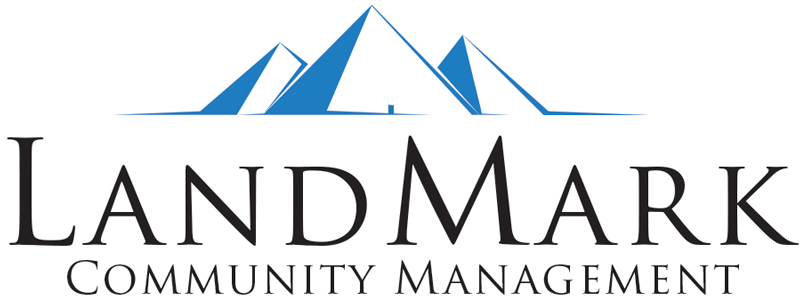There are various kinds of HOA meetings. Each type has a specific purpose and may include different requirements as well. Both board members and homeowners must be familiar with them to ensure a well-functioning community.
Types of HOA Meetings
What are the different kinds of HOA meetings, and how should they be conducted? Here’s a breakdown of every meeting you need to know about.
1. Annual HOA Meeting
The annual homeowners association meeting takes place once every year. It’s open to all community members to allow the residents to learn about the HOA. The meeting typically discusses big-picture goals, topics, and concerns of the association.
During the meeting, the board typically discusses the annual budget and obtains approval from the membership. This is where members can raise their concerns about assessments and determine what the HOA will spend in the coming year.
Moreover, the board can use this meeting to introduce new directors or upcoming capital improvements. In addition, HOA committees can use this time to report their activities to the community.
2. HOA Board Meeting

The most common type of meeting is the board meeting. Unlike the name suggests, this meeting is not exclusive to the board of directors. That said, who can attend HOA board meetings? Are HOA board meetings open to the public?
No, it is not open to the public. Like the annual meeting, it is open only to all community members. Its purpose is to give updates and allow the community to meet the board to discuss HOA matters.
Topics include the work of the HOA management company, maintenance project reports, neighbor disputes, and other community issues. The board meeting also gives the HOA manager a chance to report violations and the progress of their resolution.
Typically, board meetings occur every month or every quarter. However, the governing documents (or any legal requirements) may dictate the board’s schedule or frequency.
3. Executive Session
The executive session is a closed meeting open to the board of directors. This is because executive sessions typically discuss more sensitive topics like ongoing litigation, delinquencies, and personnel issues.
HOAs typically run executive sessions after an open HOA meeting — whether annual or board meetings. The meeting minutes might only indicate that an executive session took place afterward.
4. Committee Meeting
Some homeowners associations organize committees for projects or ongoing community activities. For example, they might create an Architectural Review Committee (ARC) to review architectural requests and report on architectural violations. Some communities also have a social media committee or a newsletter committee.
Regardless, committee meetings are typically held for committee members to discuss their projects or activities. They usually include at least one or two board members and a few non-board members. However, they are still open to the community. Thus, residents can voice their opinions or get involved in planning.
5. Special Meeting
A special meeting is not a regularly conducted meeting. The community only calls it to address specific issues or topics included in the meeting notice. These topics are usually outside of the scope of regular meetings.
For example, some communities call special meetings to remove a specific board member. They may also be held to authorize amendments or vote on other issues regarding special assessments. Depending on the governing documents and state law, there are varying requirements for special meetings.
6. Emergency Meeting
Except for special meetings, all previously mentioned HOA meetings are conducted regularly and require notice. In contrast, emergency meetings only happen once in a while. At times, they may never happen at all. This is because emergency meetings are typically held on short notice. They’re called to discuss urgent issues that need immediate attention.
For example, they may be called quickly when a fire blazing throughout the community. Emergency meetings may also address natural disasters, shootings, or terrorist attacks.
HOA Meeting Requirements
There are several requirements board members must follow when it comes to meetings.
1. Advanced Notice
Homeowners associations must give the community ample notice of board, annual, committee, or special meetings. The board usually gives at least a 30-day notice for annual meetings.
Meanwhile, the notice requirement for board, committee, and special meetings will vary based on the requirements of the governing documents. Some may require a 7-day notice, while others require a 30-day notice. However, emergency meetings do not require notice.
2. In-Person vs Electronic Meetings

The governing documents or state law may require how meetings can be held. Some may allow remote meetings via electronic platforms, while others strictly require in-person meetings. Moreover, each type of meeting may have different requirements.
For instance, a community that requires in-person board meetings may allow electronic emergency meetings. An electronic board meeting in that community may be an illegal HOA board meeting.
3. Meeting Minutes
The community’s secretary always needs to take HOA meeting minutes. Even emergency meetings need to have meeting minutes. The HOA must record these minutes and make them reasonably available to the community members.
4. Quorum
Each meeting needs to establish a quorum. If you don’t know what a quorum is, the minimum number of members must be present to make the meeting valid. A meeting that does not meet a quorum may be invalid. The HOA cannot make final decisions or discuss community matters there.
However, the quorum requirements will vary from HOA to HOA. It depends on what’s required in state law and the community’s governing documents. Even executive sessions will require a minimum number of board members to establish a quorum.
Conducting Proper Meetings
Homeowners associations need to understand the different types of HOA meetings and how to conduct them. Only then can the HOA create an organized community with proper discussions. They must also follow the guidelines in state law and the governing documents to avoid liability.
Do you need help conducting and keeping track of your HOA meetings? Professional management may help. Landmark Community Management offers premier HOA management services around Texas. Contact us online or call us now at 512-569-5527 to learn more!
RELATED ARTICLES:


